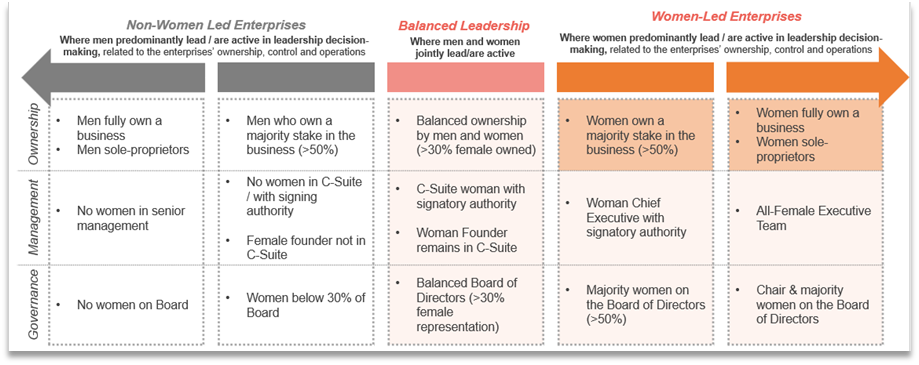The WE Finance Code is a global commitment for systemic change to eliminate barriers for women entrepreneurs. Based on the UK’s Investing in Women Code, the WE Finance model is designed to be a flexible, multi-stakeholder initiative that is fully customizable within adopters’ unique contexts.
For more clarifications, please visit the “Demystifying the WE Finance Code” primer and review the FAQs below:

